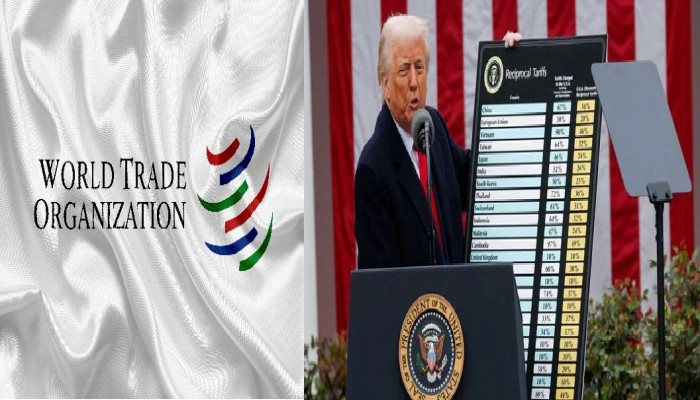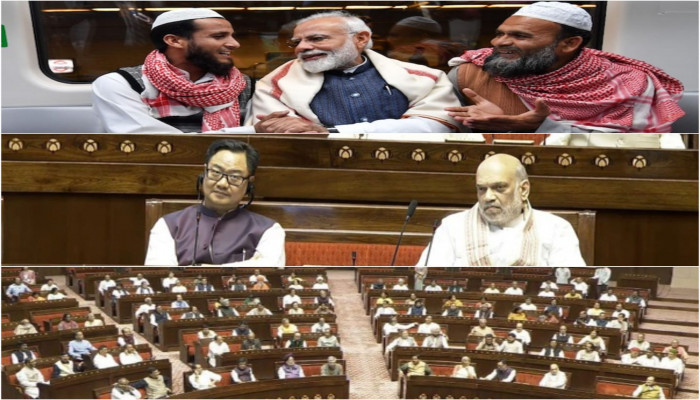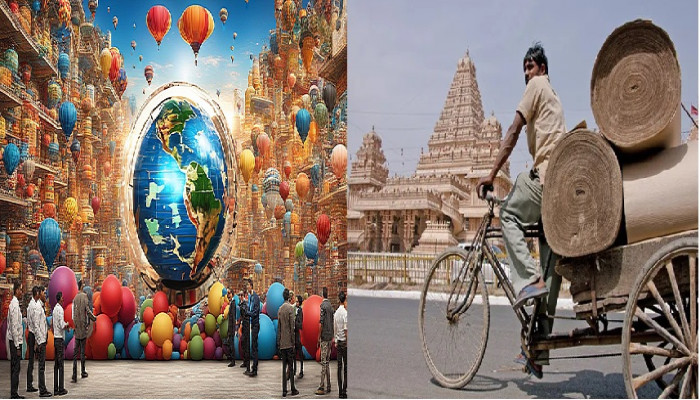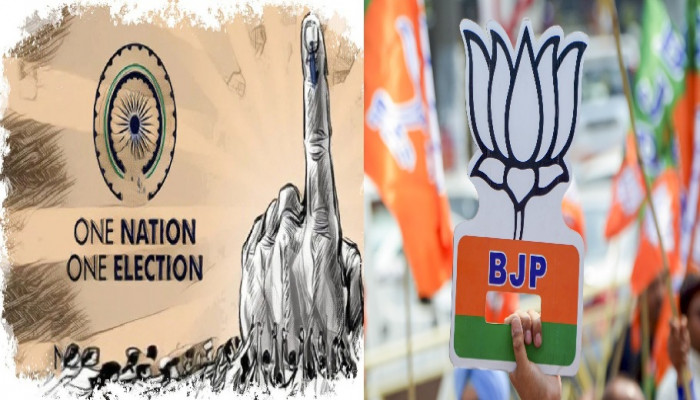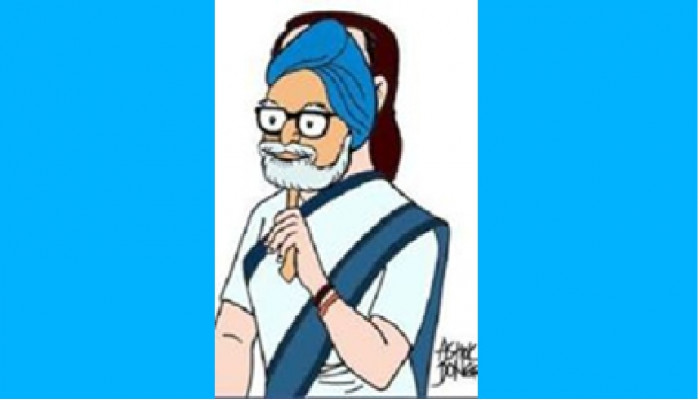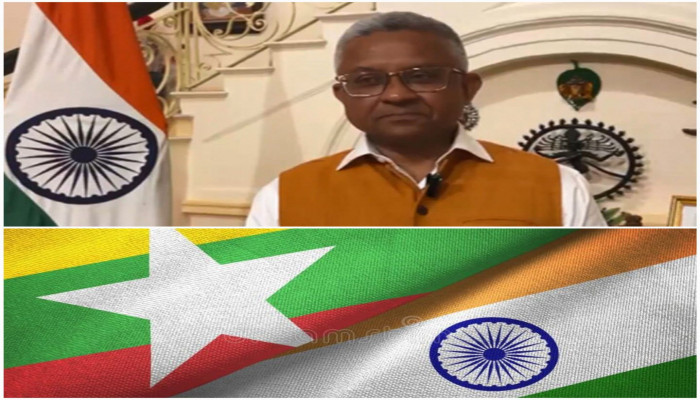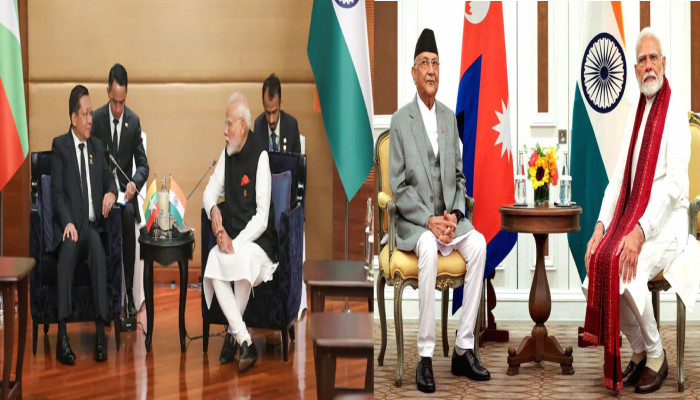- Apr 04, 2025
- Khushi Mishra & Dr. A. Adityanjee
Featured Articles
Will WTO Survive Trump 2.0 Global Trade War?
Introduction The World Trade Organisation (WTO) has long been the backbone of global trade, ensuring that economic exchanges between nations follow a structured set of rules since its inception on January 1st, 1995. From 1948 to 1994, the General Agreement in Trade & Tariffs (GATT), a predecessor of the WTO, provided the rules for world trade despite being a provisional agreement and organisation. The post-World War II era witnessed periods of the highest growth rates in international commerce under the tutelage of GATT. For the last three decades, the WTO has mediated disputes, facilitated trade negotiations, and prevented economic fragmentation. However, the organisation has faced increasing scrutiny in recent years, from shifting global economic dynamics and direct challenges to its legitimacy. With Donald John Trump announcing wide-ranging “reciprocal tariffs” on April 2nd, 2025, on all the major nations, including 10% tariffs on some uninhabited islands, the WTO faces one of its defining moments. Already, the stock markets worldwide have plunged and lost trillions of dollars in a single day! Will the WTO weather another storm of hostile policies, or are we witnessing the twilight of multilateral trade governance? Systemic Weaknesses and the WTO’s Credibility Crisis The WTO’s struggles are not new. Long before Trump’s first presidency, the organisation faced criticism over its sluggish dispute resolution process, inability to update trade rules, and struggles to address China’s rise. While initially envisioned as a pillar of fair trade, its capacity to enforce its rulings has weakened. One of the organisation’s most glaring structural flaws is its consensus-based decision-making model. While designed to ensure fair representation for all member states, this approach has led to gridlock, making meaningful reform nearly impossible. Major economies, particularly the U.S. and the European Union, have frequently clashed with emerging markets over trade liberalisation, industrial policies and regulatory standards. This inability to reconcile differences has fuelled scepticism about the WTO’s effectiveness. Even before Trump, tensions between economic powerhouses were growing. Granting membership to China in December 2001 had a profound impact on the functioning of the WTO because of China’s predatory mercantilism. The rise of China’s state-backed economic model and its integration into global supply chains created friction within the organisation. Many nations rightfully argue that China has taken advantage of WTO mechanisms without fully adhering to its principles. However, instead of working through the WTO’s legal frameworks, the Trump administration, since 2017 began sidelining the institution altogether. Trump’s Trade Policies and its Impact Trump’s first term (2017–2021) signalled a dramatic shift in U.S. trade policy. The administration pivoted away from multilateral trade frameworks, favouring a unilateral, transactional approach. This included renegotiating NAFTA into the USMCA/CUSMA, imposing tariffs on major trade partners, and attacking China’s trade practices through direct unilateral tariffs rather than WTO-mediated dispute resolution. One of the most damaging moves was Trump’s decision to block the appointment of judges to the WTO’s Appellate Body. This move effectively paralysed the organisation’s dispute-resolution mechanism, stripping it off its ability to enforce trade rulings. Without a functioning appellate process, trade disputes became more volatile, fostering an environment of tit-for-tat tariffs and economic uncertainty. What Trump 2.0 Means for the WTO With Trump back in office, a second term is poised to be even more aggressive. Key elements of his trade agenda include- Tariff Wars: On April 2nd, 2025, on the so-called “Liberation Day” Trump unveiled “reciprocal” tariffs on all the countries big and small besides plans to impose a blanket 10% tariff on all imports, with significantly higher tariffs targeting China, E.U., Vietnam, Thailand, Japan, South Korea and India. Such policies would violate the WTO’s Most-Favoured Nation (MFN) principle, which mandates equal trade treatment among all member states. Some of these countries have already announced retaliatory tariffs on the U.S. China has imposed 34% retaliatory tariffs on all US goods and services. Dispute Resolution Paralysis: Trump has shown no inclination to restore the WTO’s dispute settlement mechanism. His previous administration viewed the Appellate Body as an impediment to U.S. sovereignty. Trade conflicts could escalate unchecked without judicial oversight, increasing the likelihood of retaliatory economic measures between nations. China has lodged a complaint with WTOI about unilateral U.S. tariffs. Bilateralism over Multilateralism: Trump prefers one-on-one trade negotiations over institutional frameworks like the WTO. This approach marginalises the organisation and weakens its influence in global trade governance. He has shown willingness to negotiate “reciprocal tariffs” bilaterally with other countries but any such “deal with Trump” does not have any longevity because his penchant for not adhering to the sanctity any contract. Targeting Economic Rivals: While concerns over China’s trade practices are bipartisan in Washington, Trump’s approach is uniquely confrontational. His administration has suggested pulling the U.S. further away from WTO mechanisms governing trade with China, further eroding the organisation’s authority. Trump’s stated aims are not just economic but also geopolitical, as he wants to destroy the Canadian economy to the extent that Canada is forced to become the 51st state of the U.S. Can the WTO Adapt and Survive? Despite these challenges, several factors could determine whether the WTO can endure another Trump presidency: Multilateral Support: While the U.S. remains a key player, it is not the only influential member. The European Union, Japan and emerging economies like India and Brazil support a rules-based trade order. These nations may push forward WTO reforms without U.S. cooperation. Already, China, Japan and South Korea have met in a trilateral meeting discussing how to counteract U.S. unilateral tariffs. A WTO sans U.S. may invite the Russian Federation to become part of this global mechanism compensating for the loss of U.S. role. Internal Reform Initiatives: Discussions about overhauling the WTO’s dispute resolution mechanism and creating flexible trade agreements could help modernise the institution. Some reforms have already been proposed, such as allowing alternative arbitration mechanisms for trade disputes without a functioning Appellate Body. Economic Interdependence: Global supply chains are interconnected; even the most protectionist policies cannot entirely reverse globalisation. Many businesses and industries depend on predictable trade rules, which could motivate governments to preserve WTO mechanisms. Regional & Bilateral Trade Alternatives: If the WTO weakens further, regional trade pacts like the Comprehensive and Progressive Agreement for Trans-Pacific Partnership (CPTPP), RCEP (Regional Comprehensive Economic Partnership) or the African Continental Free Trade Area (AfCFTA) could become more dominant. While these frameworks do not fully replace the WTO, they may serve as buffers against rising protectionism. Countries like India will rely more and more on bilateral free trade agreements with other countries and grouping including the U.S. to face these tough economic challenges. The Future of the WTO: Survival or Irrelevance? The WTO has endured multiple crises, from the collapse of the Doha Round negotiations to the rise of economic nationalism. However, the Trump 2.0 era presents a uniquely existential threat. The organisation could be ineffective if the U.S. continues obstructing dispute resolution, imposing unilateral tariffs and withdrawing from multilateral negotiations. The potential implications of the WTO's future are significant. The organisation could be weakened, but history suggests that institutions often find ways to adapt rather than disappear. However, there are precedents to the contrary also. The League of Nations disappeared because of a lack of US participation. This trade organisation may shift toward a more limited role, focusing on advisory functions rather than enforcing trade rules. Alternatively, it may undergo deep structural reform, moving some of its powers to regional trade bodies. These changes could have significant implications for global trade, affecting everything from trade disputes to negotiating new agreements. The gravity of these potential implications underscores the need for careful consideration of the WTO's future. Conclusion The WTO stands at a crossroads. Trump’s return to power introduces significant uncertainties about the future of multilateral trade governance. The U.S., as a key player, will play a crucial role in determining the future of the WTO. While his administration’s policies could accelerate the organisation’s decline, global economic realities suggest that some international trade oversight will persist. Whether the WTO emerges from this period as a transformed institution or as a diminished entity will depend on U.S. policies and how the rest of the world responds to these challenges. The coming years will determine whether the WTO can reclaim its relevance or fade into the background of an increasingly fragmented global trade landscape. One thing is certain: the US under the Trump 2.0 administration will continue to work for US economic dominance and hegemony over the next three and a half years. If WTO comes as a hurdle, the U.S. might choose to withdraw from the WTO instead of working with this international trade regulating mechanism. In the event of the US withdrawal from the WTO, a diminished WTO will lose its relevance and clout. We are witnessing the beginning of a global trade war initiated by the U.S. that does not bode well for the future of the WTO and a fair and just, rule-based global trading regime. Like the now-defunct League of Nations, there is a significant probability that the WTO may not survive this economic backstabbing by the U.S.- Apr 04, 2025
- Myind Staff



